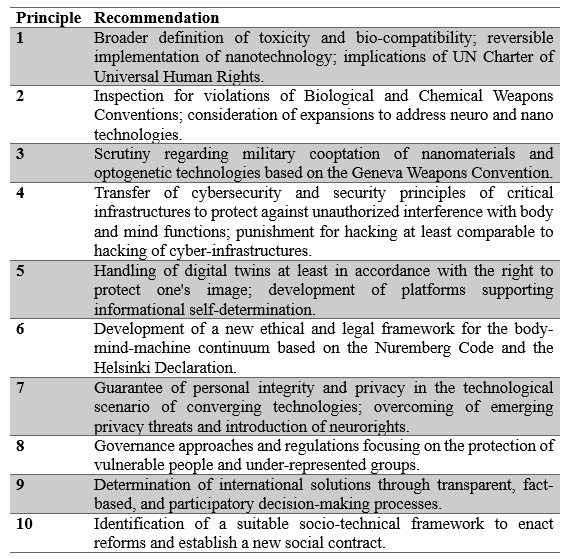INTERNET OF BODIES: CAN OUR THOUGHTS BE DIGITALLY CONTROLLED?
By Dirk Helbing (ETH Zurich) and Marcello Ienca (TU Munich)
In 2015, almost 10 years ago, the Digital Manifesto was published.[1] At that time, it issued an urgent warning against “scoring”, i.e. the digital evaluation of people, and against “big nudging”, a subtle form of digital manipulation.[2] The latter is based on personality profiles that are created using cookies and other surveillance techniques. With the Cambridge Analytica scandal, the world soon learned of the dangers of abuse: democratic elections could be manipulated!
Democracies around the world are now under great pressure. Fake news and hate speech have become rampant. We are in a kind of international information war. Meanwhile, the European Union's recently decided the AI Act, thereby attempting to curb the aforementioned dangers, among others.
However, digital technologies have developed at a breathtaking speed, and new opportunities for manipulation are already emerging. Digital technologies are now combined with neuro-, gene- and nano-technologies, which is known as converging technologies.
This enables revolutionary applications that were previously almost unimaginable, for example in medicine. Nanoparticles, i.e. tiny particles up to 100 nanometers in diameter, not visible with our eyes, are making it possible to read out huge amounts of data about our bodily functions. If nanoparticles were introduced into our body, diseases could be detected at an early stage. Treatments could be personalized. This is known as high-precision medicine.
Brain activity mapping is also on the agenda.[3] Thanks to nano-neuro technology, it is hoped that smartphones and other AI applications could one day be controlled directly by thought. In principle, this could also make it possible to read out and externally influence our thoughts and feelings in a way, which could be even more effective than previous methods like big nudging. "Optogenetics is researching ways to stimulate genetically modified nerve cells using light impulses instead of electricity," one could read in 2015.[4] Implementations are apparently already underway.[5]
It is difficult to say exactly where the development, which was once initiated by the US Defense Advanced Research Projects Agency (DARPA), currently stands. It cannot be ruled out that military applications already exist. One thing, however, is certain: long before applications in the field of high-precision medicine and neurotechnology work well, the converging technologies will be usable against humans. There is a danger that the bodies and minds of civilians will increasingly be drawn into international conflicts – either directly or indirectly. A war for our minds has certainly begun.[6]
In 2020, the World Economic Forum announced: "The Internet of Bodies is here".[7] And: "Tracking how our bodies work could change our lives." [8] What sounds like science fiction is now gradually becoming true. But how are we supposed to retain control over our lives, if it becomes increasingly possible to influence our thoughts, feelings, decisions, health, and lives remotely by digital means?
Our recently published paper entitled "Why converging technologies need converging international regulation" [9] makes 10 concrete proposals (see table). In particular, we need genuine informational self-determination. We must regain control of our personal data. This applies to the digital twins of our bodies and minds as well, i.e. highly detailed computer simulations of us and our lives – because they can be used to hack our health and our thinking, for better or worse.[10]
[1] https://www.spektrum.de/thema/das-digital-manifest/1375924
[2] https://schweizermonat.ch/you-are-the-target/
[3] https://pubs.acs.org/doi/10.1021/nn4012847
[4] https://www.acatech.de/publikation/innovationspotenziale-der-mensch-maschine-interaktion/
[5] https://www.acatech.de/publikation/innovationspotenziale-der-mensch-maschine-interaktion/
[6] https://militairespectator.nl/artikelen/behavioural-change-core-warfighting
[7] https://militairespectator.nl/artikelen/behavioural-change-core-warfighting
[8] https://www.weforum.org/agenda/2020/06/internet-of-bodies-covid19-recovery-governance-health-data/
[9] https://link.springer.com/article/10.1007/s10676-024-09756-8
[10] https://www.youtube.com/watch?v=lv-jHH8u1-E

